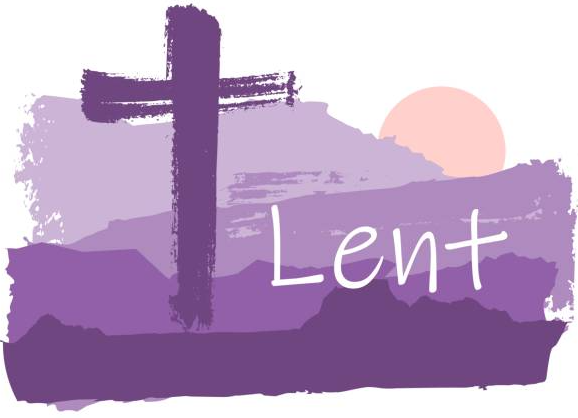On Sunday, we read John’s account of Jesus cleansing the temple. Jesus’ motivation (at least part of it) is evident is his statement in verse 16: “Take these things away; do not make my Father’s house a house of trade.” There is no indication in John that Jesus is bothered by unjust practices; it is merely the presence of trade at all in the temple that bothers him. He is saying, “These things should be outside! They are transforming the purpose of my Father’s house!”
His words might have been perplexing, though, to the Jews in Jerusalem These vendors weren’t actually in the temple—they were in the Court of the Gentiles, which is outside the temple itself. (There was a wall, separating the Court of the Gentiles from the gates leading into the sanctuary.) In other words, for the Jews, the vendors did not affect the purpose of the temple. It would be like having a coffee vendor on the lawn in front of the church—what’s the big deal? It isn’t in the sanctuary!
But imagine a setting where certain people—the Gentiles—weren’t allowed to go inside. If they wanted to worship God, the closest they could get was the lawn, and having people hawking pigeons and arguing over exchange rates definitely prevented them from praying. Jesus is outraged by the callousness of the temple leadership towards these “second class” worshipers.
Throughout John, Jesus is concerned with drawing all people to himself—not just the Jews. In his own words, salvation is “from the Jews” (4:22b), but God is seeking anyone who will worship him “in spirit and truth.” (4:23) As Jesus said later of the Gentiles, “I have sheep not of this fold; I must bring them also,” (10:16) and “When I am lifted up, I will draw all people to myself.” (12:32) He was intent on bringing all of humanity to the Father through the temple of his own body, and yet the priests were preventing the Gentiles from even praying in the courtyard in front of the temple building. This is what outraged Jesus—they were hindering others who were seeking to approach God.
This raises a challenge to us: Are we callous to the ways we make it hard for those not yet in the covenant to see God? Do place unnecessary barriers in front of people who do not know God? Does our lack of love prevent others from entering the presence of God? Our posture towards those outside the faith should make them want to come in, and not be a hindrance to them doing so.
A Prayer for Lent
Jesus Christ, true dwelling place of God with man, with your whip of fierce love drive out from us those ways we hinder others from coming into your presence.
Steven+
Scripture Reflections
As we moved to Kazakhstan, in the bus on the way to our new apartment from the airport, I was struck by an unexpected grief. We were grieving the loss of the dear friends and family we had said goodbye to as we headed to the airport in Virginia. We were grieving the loss of our home and neighborhood, the beauty and familiarity of our home country. These were weighty griefs, but they were also expected; indeed, we had begun grieving those losses long before we actually left! But looking out of the window of that crowded bus, I was overwhelmed by a new and quite unexpected grief. Checking to make sure the older boys were with Asher and didn’t look too terrified, watching the woman beside me wrap her scarf around Ethan’s bare head and listening to, but not understanding, her words of explanation and consternation, it came over me: I didn’t know how I would experience the presence of the Lord in this place.
It was then I realized a bit more fully what a gift Incarnation was to us: meeting with you all for worship, we had truly been drawn into the Father’s presence and ministered to through his Word and sacraments. The gift of familiarity with creation also struck me in a new way. When everything’s unfamiliar, especially when it feels hostile—as a strange city you hope to make your home must always feel, to one degree or another—it’s harder to notice individual things, like the plants and creatures that make up the fullness of the beauty of the Lord’s handiwork in this place. I knew there were other believers here, brothers and sisters who had already met us at the airport with such generous kindness; I knew the Lord had made this place even as he made our home state; and above all I knew, as you know, that the Lord is in all places—his presence fills the earth! And yet I was overwhelmed. I had experienced the truth and goodness of the Lord’s presence with people and in places that we had left far behind; where and with whom would I experience his presence here?
In Psalm 84, a psalm we have often sung in worship the last few months (Together with you—we share your order of service every week, and rejoice to join you from afar!), the psalmist describes a grief and longing for the presence of the Lord, and thanks be to God, he leads us from grief to glory! From an exile of some sort, he voices his longing for Jerusalem and the temple, describes the remembered beauty and joy, and even seems to envy the birds who are free to fly and make their home there. Then he reminds himself and us of the truth of the Lord’s presence with each of his people, and his faithfulness to draw us to himself (verses 5-7):
Blessed are those whose strength is in you,
in whose heart are the highways to Zion.
As they go through the Valley of Baca
they make it a place of springs;
the early rain also covers it with pools.
They go from strength to strength;
each one appears before God in Zion.
Here the psalmist not only reminds himself and us of the Lord’s presence with his people wherever they are, he also points us to what we are truly longing for: to appear before God in Zion! To go back to Virginia and worship again with you all would not actually satisfy my longing (though it would be wonderful!). My hope—and yours, whatever you are longing for—is not in going back, but in going forward, going “further up and further in!” Into the presence of the Lord through prayer, meditation on Scripture, and gathering with the saints for weekly worship, and then—and then!!—into his presence, face to face, in the heavenly City come down to earth. To use another of the songs we’ve been singing together:
Come out of sadness,
From wherever you've been.
Come broken hearted,
Let rescue begin.
Come find your mercy,
Oh, sinner come kneel;
Earth has no sorrow
That heaven can't heal.
Hannah
Lenten Reflections
One of the difficulties we face in Lent is that the Church calendar is not connected to the rest of life. If we lived in a unified society, where everyone followed the Church calendar, it would be much easier. It is hard to fast if people at work aren’t fasting, and hard to spend extra time in prayer if the school schedule is not slowing down. Advertisers don’t take a break during Lent to encourage almsgiving! If work, school, sports, and church all lined up with each other, it would be so much simpler.
I find myself longing for the unified sort of culture that would enable us all to adopt the same spiritual disciplines together. Discipleship is easier when we do it together; it is very difficult if everyone is on a different path. Living in a disjointed society means struggling to establish habits—it is easier to keep a workout regimen when you are on a team, just as it is easier to keep a fast or prayer schedule if everyone in town is doing the same. Disjointed societies make discipleship difficult!
One of the answers to disjointed societies is for the church to build its own, unified subculture. This internal unity offers the strength that makes the rhythms of discipleship more feasible, because the whole church is operating together. But there is often a cost, because these sort of unified subcultures demand a retreat from the broader world. Highly unified subcultures (think the Amish or Hasidic Jews) can easily embody common modes of discipleship, but they have to disengage from the world to do so.
We should learn from the communal approach—it makes discipleship patterns easier. (A small group would be a great place to commit to the same fasting, feasting, and prayer pattern.) But it is also important for us to realize that disunified cultures offer the gift of external witness. They might make discipleship hard, but they provide ample opportunity for contact with those who don’t yet care about following Jesus. In other words, whatever subculture we build that makes discipleship easier shouldn’t come at the expense of disengaging from the broader world. Living in a world where it is difficult to keep Lent is another way of saying that we live in a world where lots of people need the message of Lent.
The message of Lent is simple: We are mortal and weighed down by sin. We need the cross and resurrection, or all our effort will amount to “not enough” in the end. We struggle and strive to get life in order, to create peace and joy and flourishing, and yet, time after time, we find we are not enough. We must despair of ourselves—not only the things we are ashamed of but also what we view as our righteousness—and turn to the one who can actually heal us.
As you struggle to keep Lent in a culture that doesn’t make it easy, remember this message: it is Jesus, not keeping Lent perfectly, that we need. And when the conflicting patterns of the rest of life shatter your best plans for a disciplined Lent, remember the people around you in our multifaceted and diverse world. They need Jesus, too.
Steven+




